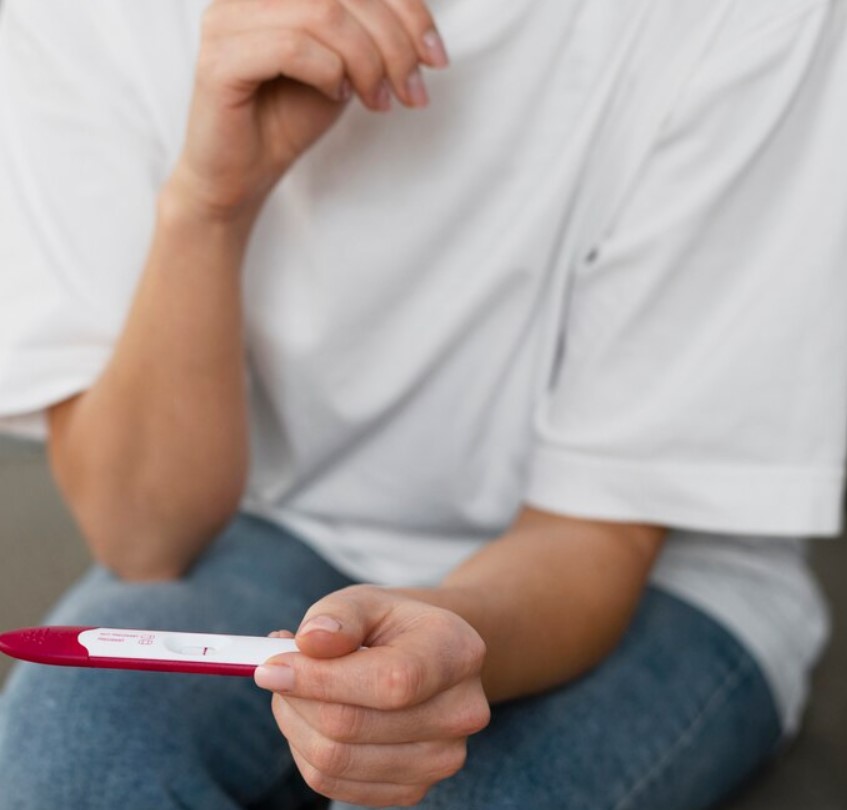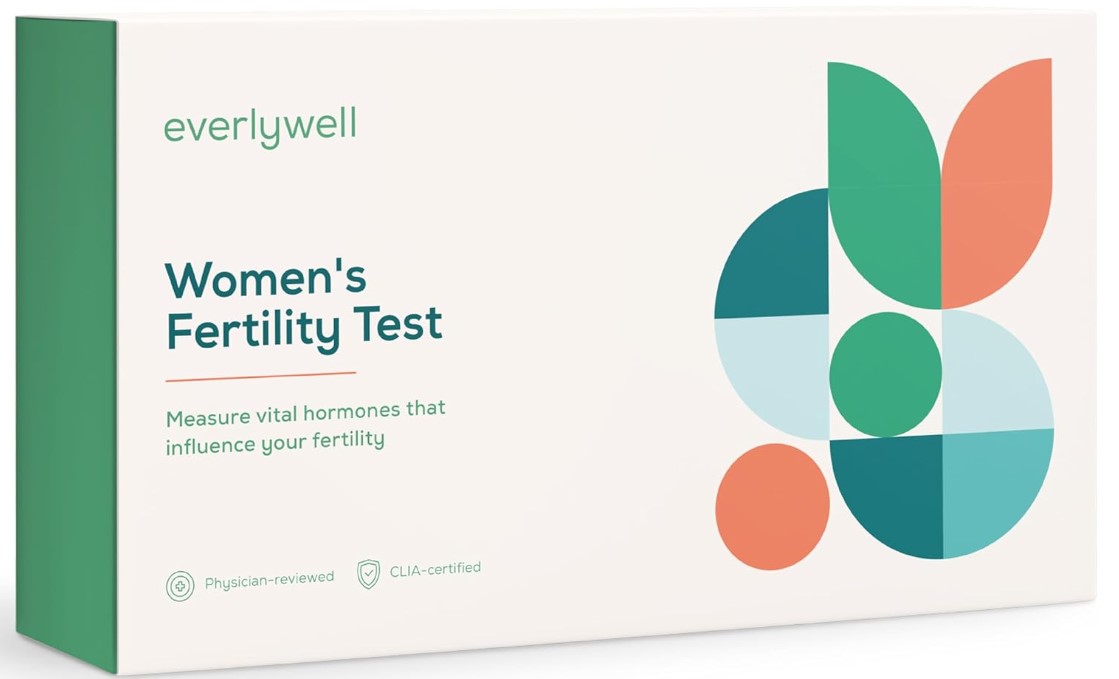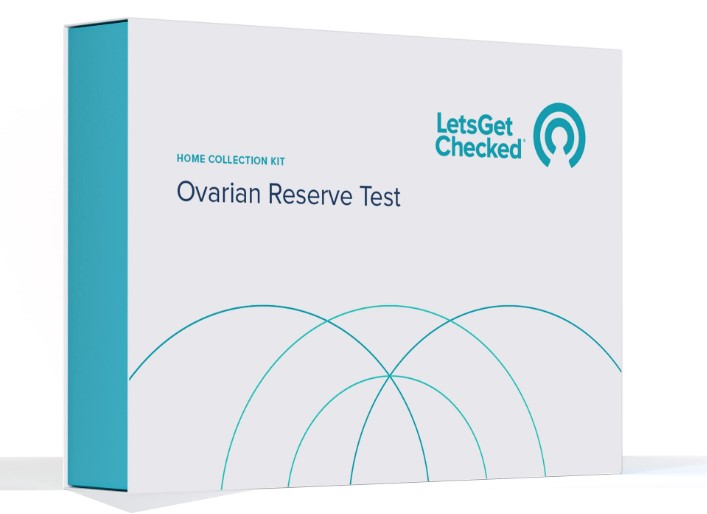To numerous women, the thought of becoming a mother is a priority or even the most desirable achievement in a lifetime. Nevertheless, when conception does not happen as quickly as the woman wants, it can become heartbreaking. This is where a fertility test for women comes in handy. These tests are useful for understanding a woman’s ability to reproduce and finding out any possible problems that could be affecting her chances of getting pregnant.
We will look into the different kinds of female fertility test types, when it is appropriate to apply them, what are the possible fertility treatments, as well as what the outcomes could indicate in this article.

What Makes Fertility?
Fertility is the capacity to conceive and successfully bear a child without any complications during the pregnancy period. Different elements, such as age, general well-being, lifestyle decisions, and hidden medical ailments, influence female fertility. Women’s fertility decreases naturally with increasing age because they have fewer eggs in their ovaries than necessary. The impact of this decrease becomes more serious once a woman reaches 35 years old. She must think about her family planning and get fertility testing if needed.
Fertility is a multi-faceted process that involves many elements such as the health of the woman’s reproductive system, hormonal balance, and good health in general.
Factors Influencing Female Fertility
- Age: A woman’s ability to conceive decreases as she gets older. When women are born, they have a certain number of eggs and this can’t be changed in their lifetime. The quality and amount of these eggs decrease over time, especially after reaching 35 years old;
- Menstruation: If a woman has regular periods, it means her ovulation is healthy. But irregular or lack of menstruation (amenorrhea) could point towards severe fertility problems;
- Hormonal imbalances: Hormones like follicle-stimulating hormone (FSH), luteinizing hormone (LH), estrogen, and progesterone are very important for controlling the menstrual cycle and ovulation. Any problems with these hormones can also result in fertility issues;
- Medical conditions: Some specific medical conditions, like polycystic ovary syndrome (PCOS), endometriosis, or uterine fibroids can affect fertility because they create issues with egg release or influence the reproductive organs. If you have any of these conditions, it is better to visit a woman’s fertility clinic before planning pregnancy;
- Style of Life: Smoking, drinking too much alcohol, being too heavy or light in weight, and having lots of stress can also make it harder to get pregnant;
Females are mostly fertile during their 20s and the beginning of their 30s. When they cross 35 years, the possibility to conceive naturally reduces, and the danger of miscarriage or chromosomal issues goes up. Although contemporary reproductive technologies might assist some females in becoming pregnant at an older age, women must understand the effect of their age on fertility when they plan to have children.
When To Consider a Fertility Check for Female?
If you have been attempting to get pregnant for longer than a year (or six months if your age is over 35) but have not succeeded, it could be a suitable moment to think about fertility testing. Signs that might show the need for using a fertility test kit for females include irregular menstrual periods, past cases of pelvic inflammatory disease, endometriosis, or if there is a family history of difficulties in becoming fertile. Furthermore, if you intend to postpone having children then getting a fertility test can assist you in evaluating your egg supply and make knowledgeable choices about your fertility path ahead.
This is when you should start searching for the Google hint “ fertility clinic near me ” and sign up for an appointment:
- You are older than 35 years and have been attempting to conceive for six months or longer without any success;
- You have tried to get pregnant for one year or longer and are younger than 35;
- You have an irregular menstrual cycle or do not menstruate at all, perhaps due to a medical condition such as polycystic ovary syndrome (PCOS);
- You experience painful periods that cause severe discomfort;
- You’ve had surgery on your pelvic region in the past, possibly because of an ectopic pregnancy or endometriosis;
- You’ve experienced two or more consecutive miscarriages in the last six months;
Guidance for Seeking Help
These are just a few common reasons for infertility. If any of these factors apply to you, it is advisable to consult with a specialist who can guide you through the necessary tests and treatments. You are not alone in this struggle. According to a recent report posted by the National Institute of Child Health and Human Development, there are at least 11% of U.S. women within the reproductive age niche have certain problems bearing a child because of infertility.
Types of Fertility Testing Methods
Ovulation Tests
This diagnostic test for female infertility is made to find the rise in luteinizing hormone (LH) that happens just before ovulation. For example, applying a female egg count test can show when it’s probable for a woman to have an egg, so she can plan sex to enhance the possibility of getting pregnant. You can buy these tests without prescription and they offer a simple method for women to monitor their ovulation cycle privately from home.
Hormone Tests
Tests for hormones involve examining the amounts of different reproductive hormones in a woman’s body. These tests can assist in recognizing hormonal misbalance that could be influencing fertility.
A few usual hormone tests are:
- FSH (follicle-stimulating hormone) test: This checks the amount of FSH in your blood, which can show how well your ovaries are working. It helps evaluate ovarian reserve and egg quality;
- Anti-Mullerian hormone (AMH) test: Assesses ovarian reserve by measuring AMH levels;
- Estradiol test: Evaluates estrogen levels, which can impact egg development and ovulation;
- Progesterone test: Measures progesterone levels to confirm ovulation has occurred;
Hysterosalpingography (HSG)
HSG is a kind of X-ray process that looks at the uterus and fallopian tubes. In this test, a special dye or liquid contrast is put into the uterus through its opening which helps the doctor to see if there are any obstructions or problems in those parts stopping pregnancy from happening.
Transvaginal Ultrasound
A test called transvaginal ultrasound takes pictures of the reproductive organs by using high-frequency sound waves. This helps in finding problems with structure like fibroids (growths on the uterus), polyps, or cysts in ovaries that can affect fertility.
Hysteroscopy
The illness you have is called hematuria. This term refers to blood being present in the urine, which can occur because of many possible reasons such as urinary tract infection, kidney stones, or other problems with your kidneys. A hysteroscopy is a small procedure where a doctor looks inside the uterus using a thin tube with a light called a hysteroscope. It can help diagnose and treat issues like adhesions, septums, or polyps in the womb. The illness you have is known as hematuria, which means there is blood in your urine. This condition could be caused by various factors like urinary tract infection (UTI), kidney stones, or other problems related to kidneys.
Laparoscopy
Laparoscopy is an operation where tiny cuts are made in the belly, and a slender tube with light known as a laparoscope is put inside. This examination can assist in identifying and dealing with issues like endometriosis, adhesions within the pelvis area, or blocked fallopian tubes that could lead to infertility.
Fertility testing at clinics are special medical check-up aiming to evaluate a woman’s reproductive system and her capacity for conception. Fertility testing can also be done at home to discover if any reasons prevent pregnancy, like hormone imbalances or issues related to ovulation (like low egg count). These methods also help in identifying physical problems such as abnormalities in the structure of reproductive organs that could make it difficult for a woman to get pregnant naturally. Only a healthcare specialist can recommend the most suitable fertility testing method in every individual case.
Choosing the Best at Home Fertility Test Female Kit – Top 4 Picks
Modern Fertility Hormone Test
This kit gives a thorough view of your fertility by examining up to seven hormones. It is one of the most affordable and simple-to-use fertility blood tests, which can be done at home.

The hormone balance picture gives a better understanding of ovarian reserve (amount of eggs), ovulation processes, and other natural factors that might affect fertility. A doctor should review the results to interpret them correctly.
Everlywell Fertility Test
The Everlywell fertility test shows the levels of 5 female hormones related to fertility. You should gather a little blood sample by touching your finger to the kit’s device and also provide a saliva sample.

The tested hormones are Estradiol, Luteinizing Hormone (LH), Follicle-Stimulating Hormone (FSH), Thyroid Stimulating Hormone (TSH), and Free Thyroxine (FT4). Knowing these numbers aids in spotting possible fertility problems.
Oova Fertility Tracker
This female fertility kit is somewhat different from the others. It uses a combination of urine analysis and an app powered by artificial intelligence to give an accurate understanding of your fertility window and ovulation time.
![]()
The kit examines luteinizing hormone and progesterone levels in urine from samples, offering professional advice and forecasts related to your fertility cycle. This is a powerful instrument for monitoring fertility changes across multiple cycles.
Letsgetchecked Ovarian Reserve Home Female Fertility Test
Emphasizing ease and seclusion, a LetsGetChecked fertility test provides a hormone test that gauges numerous significant hormones influencing fertility like prolactin, LH, and FSH. This fertility testing kit is commonly picked for its precise results.

It is intended for individuals who wish for a more comprehensive understanding of their fertility condition or to keep track of their hormonal health over time.
Remember, even though these fertility tests you can do at home might provide useful information about your reproductive well-being, they are not enough to substitute for a doctor’s guidance. It is always advised that you talk with your health professional to understand the results and choose what action is best according to your health requirements and fertility aims.
Interpreting Fertility Test Results
Results from a fertility test can give useful information about your ability to reproduce. But, you should talk with a healthcare provider who knows this field so that they can assist in explaining what the results of the test mean. Without a specialist’s assistance, even the best fertility test for women may turn out to be useless. The usual values for fertility tests might differ according to certain elements like age and personal situation.
Your healthcare provider, who is an expert in this area, will analyze your test outcomes along with details about your medical past, physical investigation, and any symptoms you have observed. You can collaborate to create a tailored strategy for tackling potential fertility difficulties and progressing towards realizing the family planning objectives that have been set.
After Testing – The Most Common Fertility Treatment Options
If the results after applying a reliable hormonal or blood test for a fertility female kit show a possible infertility problem, you can look at different routes to solve it.
Treatment Choices for Fertility Difficulties
Your healthcare provider might suggest different treatment choices based on what is causing your fertility problems. The common options are:
- Ovulation induction medications;
- Intrauterine insemination (IUI);
- In vitro fertilization (IVF);
- Surgery to correct anatomical issues;
Lifestyle Adjustments for Better Fertility
Altering certain habits and lifestyle choices can assist in improving your fertility. Some useful changes may involve:
- Maintaining a healthy weight through a balanced diet and regular exercise;
- Managing stress through techniques like meditation, yoga, or acupuncture;
- Avoiding smoking, excessive alcohol consumption, and illicit drugs;
- Adding fertility-enhancing foods to your meals. These include things like leafy greens, whole grains, and lean proteins;
Support Groups
Your close ones may offer understanding and love during this time. The specialized groups can also provide you with an area to share experiences and emotions. Mental health specialists have professional knowledge in assisting people experiencing fertility difficulties to cope with their feelings. Fertility advice helplines are also available 24/7 for you to talk about your concerns.
You can usually find their contacts on the website of your local fertility clinic or hospital:
- Fertility counselors or therapists who specialize in reproductive health;
- Support groups or online communities for individuals and couples facing similar challenges;
- Friends and family members who can offer a listening ear and emotional support;
The emotional aspect of infertility is very important because it can affect women and their partners deeply. Understanding this and acknowledging the feelings that come with these difficulties is crucial. Joining a support group or seeking counseling might offer an opportunity for you to share your experiences in a secure setting, where others may comprehend what it’s like.
If having a child through biological means is not possible, then you could consider other options like adoption or surrogacy.
Conclusion
Fertility testing for women at a specialized clinic and with the help of at-home fertility test female-aiming kits is an important part of comprehending your reproductive health and making wise choices regarding planning pregnancy.
Knowing about the different types of tests that can be done, when they are needed, and what their results could mean helps women take steps toward realizing their desire for motherhood. If you are having difficulty getting pregnant, it is essential to talk with your healthcare provider about checking your fertility. You can guide yourself in fertility matters, knowing the appropriate details and getting the necessary assistance to form decisions about your reproductive well-being.

